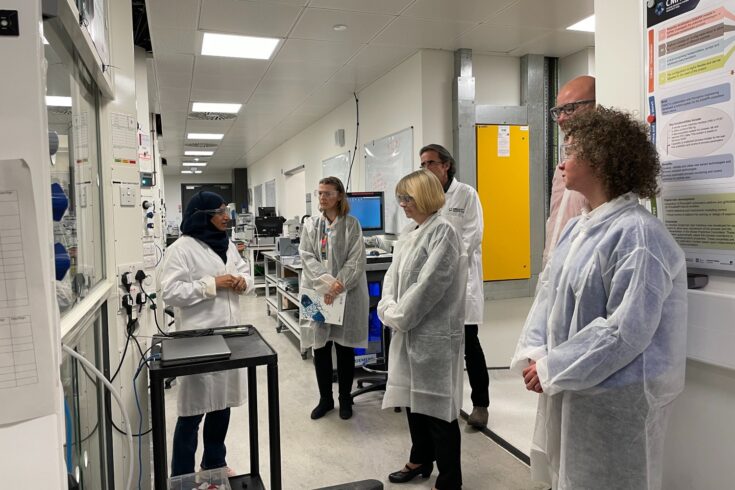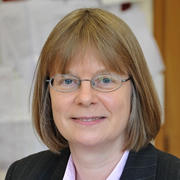2022 was a pivotal year for UK Research and Innovation (UKRI) with, for the first time in our existence, a multi-year financial settlement and the publication of our 5-year strategy for transforming tomorrow together. It has been a year for setting our vision for the future of the UK’s research and innovation landscape and starting to deliver it. During the summer we published the strategic delivery plans of the UKRI councils and the UKRI corporate plan, providing details of what we will deliver over the coming 3 years.
It has also been a year of considerable uncertainty and change across the research and innovation landscape. This included reviews led by Sir David Grant, Professor Adam Tickell, and Sir Paul Nurse, and the development of new government strategies across various science and technology areas. With excitement, uncertainty, and change it has been important for UKRI to engage across our communities and stakeholders, reflecting their views and priorities, and to advocate for the role that research and innovation plays at the heart of society and the economy, benefitting all and enriching lives.
To discuss our new strategy, plans, and emerging sector priorities and issues, colleagues from across UKRI have undertaken a huge range of community engagement across the country. To name but a few from within the Engineering and Physical Sciences Research Council (EPSRC) alone, we have:
- undertaken numerous team visits to universities, facilities, public sector research establishments, and institutes
- convened and engaged across our advisory structures, including regular meetings with our council, the Science, Engineering and Technology Board (SETB), Strategic Advisory Network, Business Engagement Forum, and theme-level strategic advisory teams
- held our annual key partners event, hosting stakeholders from across academia, business, and government departments
- hosted the regular research office workshops, engaging with colleagues across our university partners
- welcomed diverse stakeholders from universities, higher education alliances, and civic organisations to our place-based Impact Acceleration Account town hall meetings in Belfast, Cardiff, Leeds, and Edinburgh
- celebrated the contribution of engineering and physical sciences to providing solutions for delivering net zero at our Engineering Net Zero Showcase in Glasgow, bringing together researchers, industry leaders and policy makers to continue conversations started at United Nations Climate Change Conference (COP26)
All the above activities have been insightful and enjoyable, and I thought it worth saying a little more about the university visits that I have undertaken to many of EPSRC’s strategic partner universities. These visits enable us to engage directly with senior leadership in these universities to discuss our new strategic delivery plan and their own university priorities.
This has been an inspiring sequence of visits across England, Scotland, and Wales – 13 in-person and 7 virtual – where I’ve seen and heard about many exciting initiatives that build upon the UK’s world class research base in the engineering and physical sciences and make the most of the people, facilities, and large-scale infrastructure supported by EPSRC and UKRI. My thanks go to everyone involved in hosting and organising these visits – I certainly appreciate all the work that goes into them!

Figure 1: map of the 2022 to 2023 EPSRC Executive Chair university visits, in-person visits shown in red, virtual visits in blue.
Discussions during these visits have been wide ranging, reflecting the myriad priorities of our diverse stakeholders, as well as issues that arise in a rapidly evolving research and innovation landscape, and have included:
- UKRI’s strategy, EPSRC’s strategic delivery plan priorities, and alignment of these with universities’ strategies
- the place and levelling-up agenda, including our new funding for Place Based Impact Acceleration Accounts
- inflationary pressures and wider rising cost issues
- research culture and wider equality, diversity, and inclusion considerations
- association to Horizon Europe and the development of long-term alternatives
- support for studentships and the new EPSRC Centres for Doctoral Training funding opportunity
- new ways of working within UKRI, including collective talent funding,
- UKRI cross research council responsive mode and UKRI strategic themes
- working with business, including EPSRC’s Prosperity Partnership scheme and its future developments
- the interface between UKRI, EPSRC and the Advanced Research and Invention Agency (ARIA)
- the role of EPSRC’s institutes (the Rosalind Franklin Institute, the Henry Royce Institute, and the Alan Turing Institute) and their interfaces with universities
- EPSRC’s working with government departments and engagement with local and regional stakeholders
Looking ahead to 2023, engagement with our communities will remain as important as ever. The policy landscape will continue to evolve at pace, UKRI will continue to develop its new ways of working, new opportunities for funding will be launched, and who knows what else will come as a surprise to us all?! My sequence of visits to strategic partner universities will continue throughout the first quarter of the new year, and EPSRC’s broader community engagement will continue. This will include a myriad of team visits, and exciting events such as the launch of our renewed healthcare technologies strategy, a joint EPSRC-Innovate UK visit to the Henry Royce Institute, and our first prosperity partnerships showcase.
As always, my EPSRC colleagues and I look forward to working across UKRI and with the wider engineering and physical sciences community in the coming months. We will work with you to deliver our ambition for the UK to be recognised as the place where the most creative individuals can deliver world-leading research.
Top image: Lynn touring Continuous Manufacturing and Advanced Crystallisation (CMAC), a research facility for manufacturing processes in the medicine supply chain at Strathclyde University. Credit: UKRI




